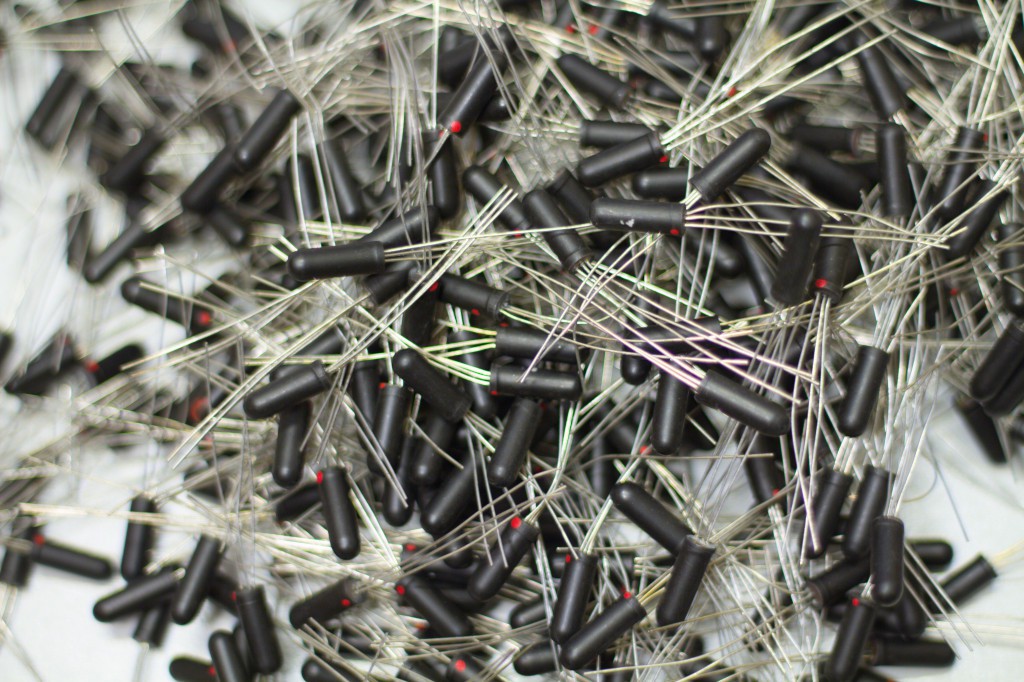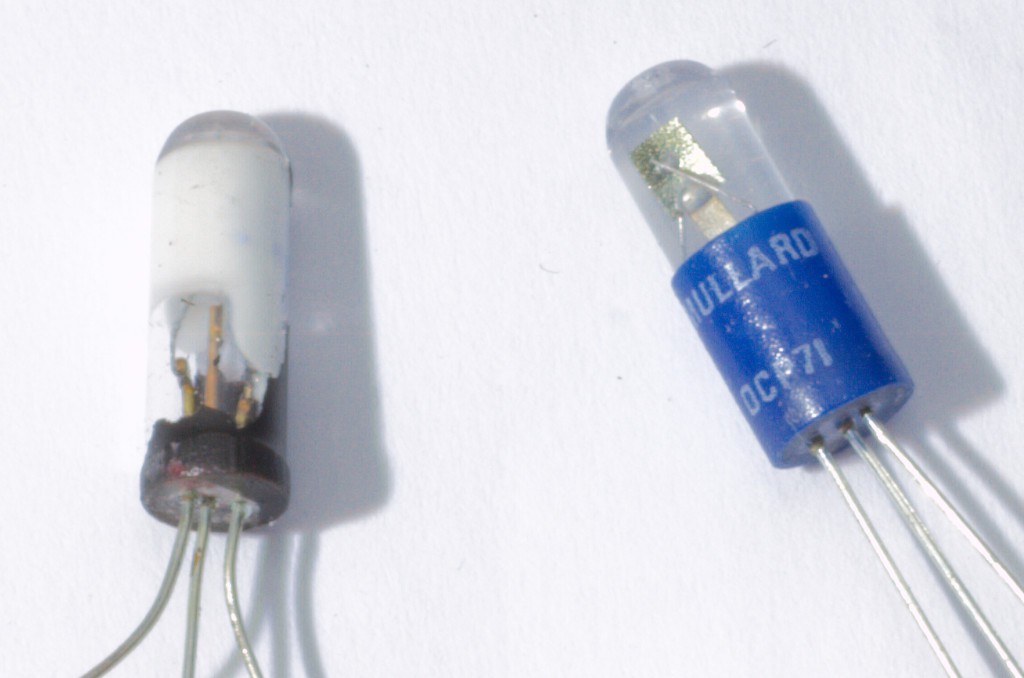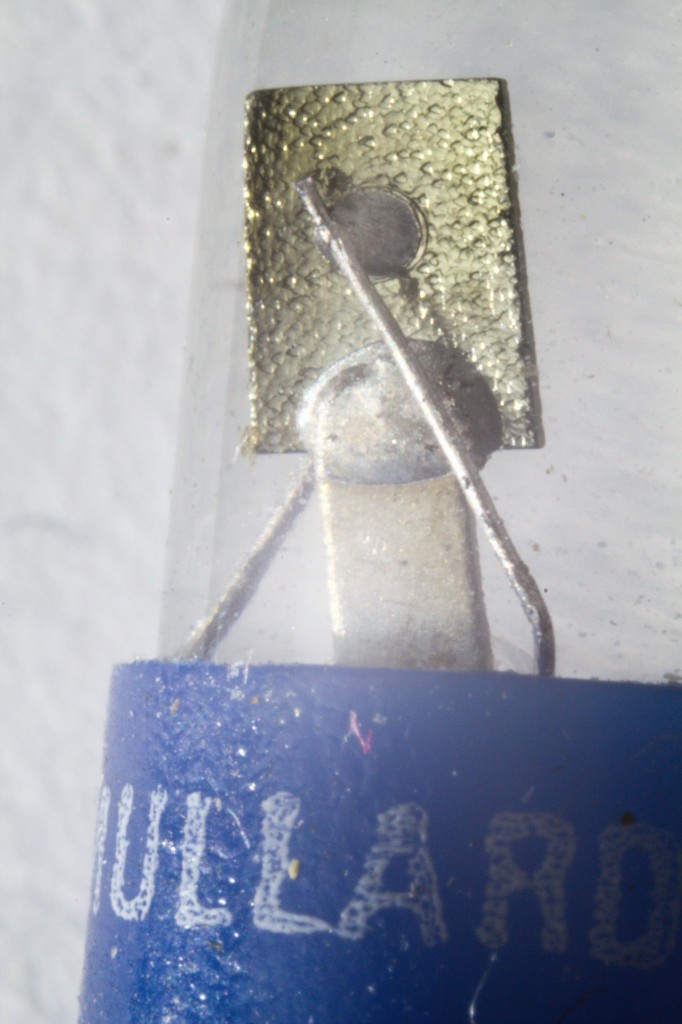I have a few OC70 (or so it seems, as there is no marking).

But it's not easy to look inside the glass casing, because it is filled with a silicon grease mixed with opaque alumina powder... to prevent people from scratching the cellulose black paint and use it as a phototransistor. This had to be done with a OCP71, the very same thing but sold 3× the price, because the sikicone grease is clear.
This is shown in the pictures below :

The left shows the stock OC70 with some black paint scratched, and the right is the OCP71. We can only infer that the insides are identical. So let's zoom inside the OCP71 :

It's an "alloy" transistor where the doped germanium chip is tied to the base (the large electrode), and the emitter and collector are tied through another metal (usually indium) "alloyed" by fusion in a oven.
These transistors are not the fastest, on the contrary, but much better than the early point-contact models. They have decent audio performance and enhanced versions could reach some tens of MHz. But here, it's an audio-range device. Hopefully it can reach the speed of the quartz resonators :-)
 Yann Guidon / YGDES
Yann Guidon / YGDES
Discussions
Become a Hackaday.io Member
Create an account to leave a comment. Already have an account? Log In.
>I have a few OC70 (or so it seems, as there is no marking)
Or maybe OC71.
>it is filled with a silicon grease mixed with opaque alumina powder
Wasn't always the case (pun intended). I had some that contained translucent paste and worked as phototransistors after the paint was removed. I think I even made a slave xenon flash trigger with one. Wouldn't be the first example of price differentiation. I gave away all my germanium transistors decades ago to somebody who wanted to build an amp for retro sound so this is just a warm retrospect for me. No more BC leakage but no romance with boring plastic case TO-92 silicon transistors. I bought a couple of 500 or 1000 count grab bags for subsequent projects. But that's another tale.
Oh yeah, and the recommendation to use a croc clip to divert heat from the leads when soldering, as Ge is more liable to be ruined by heat compared to Si.
Are you sure? yes | no
> Or maybe OC71.
looking at the gains I measured at https://hackaday.io/project/10698-clockwork-germanium/log/221100-more-germanium-lemonade-oc70-edition (20 to <50) I bet for OC70, the little brother/binned-down version of OC71. I'll have to look at the invoices to verify....
> I gave away all my germanium transistors decades ago to somebody who wanted to build an amp for retro sound
*sigh* :-P
> Ge is more liable to be ruined by heat compared to Si.
yes, particularly the alloyed ones, I suppose, I don't know the melting temp of indium though.
Thanks for sharing :-)
Are you sure? yes | no
>>I gave away all my germanium transistors decades ago to somebody who wanted to build an amp for retro sound
>*sigh* :-P
I think he made better use of them than I did. I discovered that some of the OC71s I had been given from the workshop bin were totally shorted but if I passed a high current through them they would explode like a small firecracker. Electronic firecrackers from a distance! 🤗 These days you'd have to get an ESP32 involved. 😜
Are you sure? yes | no